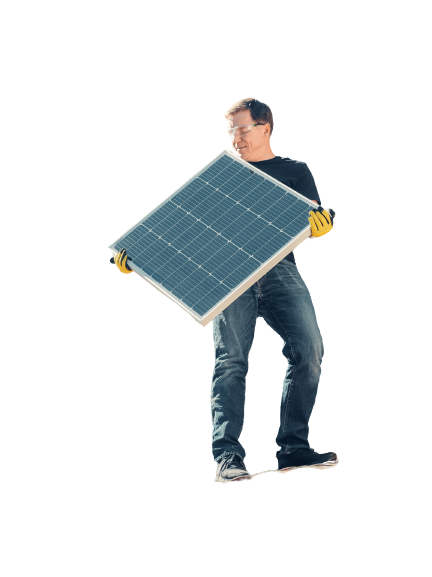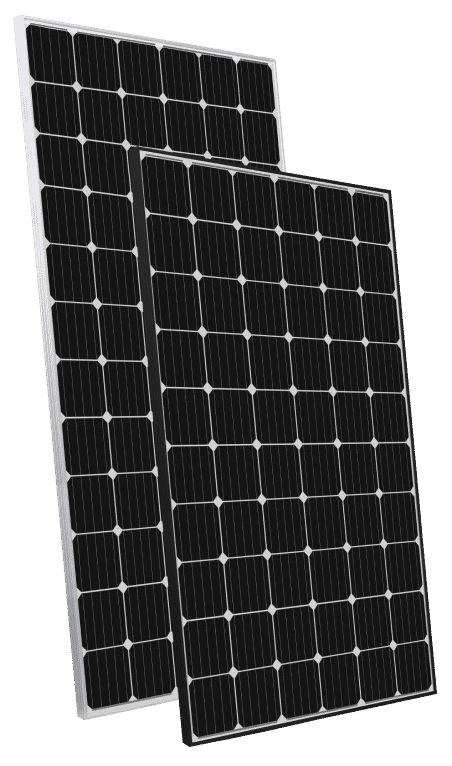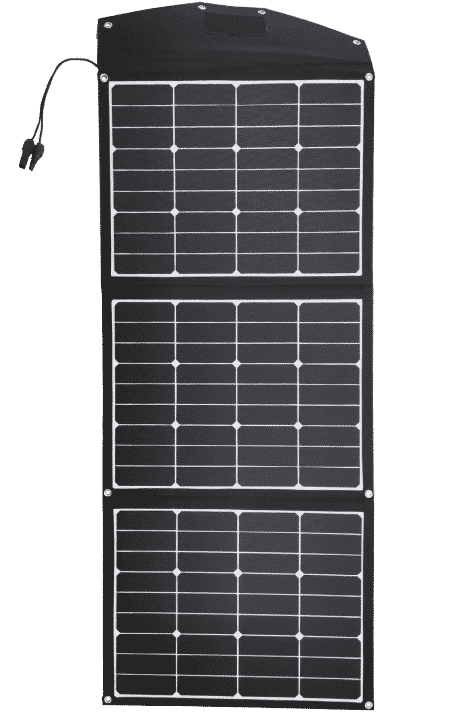Solar Financing

Scroll down
Solar Financing
What is a Solar panel loan?
Solar panels harness the sun’s energy to produce electricity. Solar panels are installed by homeowners for two main reasons: to reduce their electric bills and to help reduce greenhouse gasses.
Solar panel financing is designed for homeowners to get the money they need to buy a solar panel system. Solar panel loans allow homeowners to finance the installation of solar panels over several years rather than having to pay out of their own pockets.
Savings
Solar panels can save the average American family more than \$1,400 annually in electricity costs. Although homeowners can save significant money, there is a large upfront cost. This is where a loan from the Nevada Solar Group can help. The average cost of solar installation for a home with an average size in the U.S. is between $11,144 to $14,696 according to Nevada Solar Group. The total cost of solar equipment can be reduced by tax incentive programs, which we’ll discuss later.
Personal loans
You can check Nevada Solar Group, the best personal loans and rates for financing solar panels today. You can also find information about credit requirements, loan amounts, terms, and other details from Nevada Solar Group, our favorite personal loan lenders.
A personal loan is a good option if you are looking for a loan to solar. Personal loans are available in many sizes, and offer attractive terms and low interest rates to borrowers with good credit.
There are two types: secured and unsecured personal loans. Unsecured personal loans don’t require collateral. Secured loans require collateral. Secured loans tend to have a lower interest rate and monthly payment because the lender is aware that you can fail to pay your monthly payments and they can sell your collateral to recoup their losses.
How do you pay for going solar?
Your income, credit score, location and how long the solar array will be worth it all determine which financing option is best. For expert and reliable advice on financing solar panels, speak to an expert. Each option has its pros and cons. Each will have an impact on how much you can save and how long it takes for solar panels to pay off.
Although solar leases may have been popular in the past, and may have worked for your neighbor, you may find better financing options. There are many options available in Nevada Solar Group for zero down solar financing.
There are two types of residential solar financing options: Direct Ownership or Third Party Ownership.
What credit score do I need to get a personal loan for solar panels?
Nevada Solar Group will determine the minimum credit score required for personal loans. To be approved, your credit score must be at least 580. High credit score borrowers are more likely to be approved for the best rates and repayment terms.
You can delay solar panel installation for a few months. If possible, you should consider improving your credit score. Check your credit report for errors, pay off high interest debt (such as credit card debt), and establish a positive payment record by paying your bills on time.
Apply for personal loans for people with bad credit if you don’t have the credit score you need but still want to finance solar panels. Your credit score will reduce your chances of being denied a loan. You’ll be able to make the monthly payments on the loan that you choose without worrying about your credit score.
If you have great credit, personal loans will be available with very competitive interest rates. Low interest rates can help you save hundreds of dollars over your loan term. Even a small difference of 1% can mean significant savings. To maximize your savings, look out for low-interest personal loans that are available.

Other loans for solar panel financing options
Solar panels can be funded with personal loans, but that’s not all. These are just a few of the other options available to finance solar panels.
Loan from the government
Power Saver is a Federal Housing Administration program that helps homeowners save energy by offering loans for a wide range of technologies. Two options are available in this program that offer large enough loans to fully finance solar panel financing: the Power Saver Energy Rehab 203(k), Loan or the Power Saver Second Mortgage. To qualify for this type, borrowers will need to meet certain qualifications, including a minimum credit score (660) and a ratio of debt to income of 45%.
- The Power Saver Second Mortgage allows homeowners up to \$25,000 in second mortgages to improve energy efficiency by installing solar panels. Homeowners cannot have a second mortgage, home equity loan, or second lien in order to be eligible for this program. Participants can repay the loan for up to 20 years.
- For anyone who is buying or refinancing their home and would like to include the cost of any upgrades in the new loan, the 203(k) loan is available. They can repay the debt for the full length of the mortgage.
These programs are popular because they offer a lower interest rate than personal loans, but a longer repayment term. FHA is strict about what you can spend so you will likely stay within your budget and only buy what you need.
FHA financing limitations apply. This means that you have to stay below the spending limit. You may have to replace the solar panels if you finance solar panels over 20 years. Nevada Solar Group is familiar with these programs. FHA rules must also be followed. This can slow down the loan process.
Home equity loan
Home equity loans allow you to borrow money from your equity to finance renewable energy. A bank typically lends up to 85% of your equity for projects like this. If your home is valued at $300,000. but you owe only $200,000, then you have $100,000 equity. The bank will approve you for up to $85,000. A home equity loan for solar panel installation will allow you to secure a good interest rate because your property is used as collateral. The bank can also repossess your property if you default on payments.


Solar leasing
Technically, this doesn’t require you to purchase your own solar panels. This program lets you lease (or rent) solar panels. Solar panel companies offer leasing programs that require no down payment. You immediately benefit from the energy savings as the Nevada Solar Group installs your panels. You will not be eligible for tax credits or the right to own the panels. Additionally, you will miss out on tax savings and solar incentives.
Taking Out a Solar Loan
You can get a loan from Nevada Solar Group if you don’t have enough cash to purchase your system. This solar financing company offers flexible loan payment options to customers who need to put down cash upfront, pay the loan off quickly, have poor credit, or want to save more immediately. A solar loan usually requires no down payment, which makes them appealing and practical.
Nevada Solar Group will charge you an additional cost to finance your system, just like a home mortgage or auto loan provider. The cost of financing your system will vary depending on your credit score and the length of your loan.
The interest rate is another cost factor to consider when considering a solar loan. The annual percentage rate (APR) is the cost of additional monthly payments. It includes both the interest rate and other fees. Your monthly payment will increase due to the fixed APR. Make sure you research all options before choosing the best APR for financing solar projects.
Except for PACE financing, obtaining a loan will require a soft credit check. A minimum credit score of 640 is required to be eligible for a solar loan.
Other than a high credit score, you will need to have the following documents in order to be eligible for a loan from a solar company:
- To determine the amount of your loan, you will need to design your system.
- A loan application
- Approval from your loan provider
Nevada Solar Group allows you to apply for a loan and finance your project after you have received and selected a bid from a solar contractor.

Types of Solar Panel Loans
Re-amortizing a term loan
We suggest that you use your Tax Credit to re-amortize your loan once you have received it. Re-amortization will reduce your monthly payments over the remainder of your loan term.
Same as cash option
This option will allow you to base your monthly payments on 70% of the loan principal for the first 12-18 month. This will allow you to pay 30% of the loan principal with the money that you have saved from your tax credit over the next grace period which is usually 12 months. The homeowner can get a 30% discount on their first monthly payment with Same as Cash.
Combo Loans
A Combo Loan consists of two parts.
The Bridge Loan. The 30% tax credit toward your income taxes for the year, since you purchased your solar system using a loan. A combo loan will give you between 12-18 months to repay 30% of the loan principal. Your federal and state tax credits can be used to pay off the first part of your loan. You will also receive lower interest rates for the remainder of the loan term. You must be able to pay the initial 30% of your loan with the Bridge Loan terms and the tax credits. You may have to pay out of pocket or high interest rates if your income taxes exceed your tax credit.
The Net Solar Term Loan. The remaining term of your loan will allow you to repay 70% of the principal.
Direct Ownership: Buying Solar Panels
Going solar with cash
Cash is the best! Cash payments are the best way to save money and get the highest return on your investment. This is the only way to get solar power without interest.
From the moment your solar system is turned on, it will produce free energy and save you money. Depending on the size and type of solar panels you choose, the typical payback time for rooftop solar in the United States can take between 4-8 years.
It is easy to buy a solar power plant with cash, as there are no third-party solar financiers.
Nevada Solar Group offers 4 progress payments to cash purchases:
- “Down Payment/Deposit” – typically, $1,000 is due at the time that your site visit is complete
- “Due upon Approval Of Site Designs” – $2,000 due after you have approved your ‘final site design’ from the installer
- “Due upon Delivery of Materials” – 60% is due when equipment is delivered or the first day after installation
“Due upon Final Building Inspection” – The balance due when your project passes city building inspection
The benefits of owning solar
Your solar system will provide you with more savings over the life of your life
While your lifetime savings may vary depending on your energy consumption and your zip code, owning your solar system is the best option for customers who are interested in solar. Renting from a third-party system will yield higher savings if you own your system.
Solar ownership directly increases your home’s value
According to U.S. Department of Energy’s Lawrence Berkeley Labs, home-buyers will pay $4/Watt more for solar panels. Your home’s value will be determined by the solar panels, which will provide free electricity for many years. You can still sell your home even if you’re paying off the loan. You can transfer the loan to the tenant or repay the remaining loan amount with the sale.
The Solar Investment Tax Credit is available to you
You must meet the following requirements to be eligible for the tax credit:
- You can purchase your system using a loan or cash
- You can pay income taxes equal to or greater than 30% of the system cost
It’s that easy! This is a step by step guide to help you file for your federal Solar Investment Tax Credit. The tax credit equals 30% of the total cost of your solar system. The total credit is taken from your personal income taxes in the year your system starts production. What happens if you have lower income taxes than your tax credit? The Solar Investment Tax Credit will rollover to the next year if necessary, up to a maximum of five years.
Solar Ownership Cons
One of the downsides to owning your system, however, is the responsibility for panel maintenance
Maintenance is easy, thanks to the simplicity of solar systems. A solar system has no moving parts, so it requires little or no maintenance. While your solar system might need to be cleaned up after dust or dirt collects, tilted panels can be easily cleaned by regular rain. It will be your responsibility for finding repairs if your panels are damaged. Nevada Solar Group offers a strong warranty to protect you against any unforeseeable damages.
You should monitor your energy production if you own the system. Every month, check your electricity bill and solar production. If you don’t check your system regularly, it may go unnoticed for several months.
What to look for when financing solar panels
You may feel compelled to choose one type of lender when financing solar panels. Let Nevada Solar Group help you to proceed with the purchase. An interest differential of just one percent can make a difference in saving you thousands of dollars over the lifetime of your solar loan.
Here are some things to consider when financing solar.
- Low interest rates. Solar panels will pay back faster if you pay less for your loan.
- Repayment terms that are attractive. Personal loan repayment terms that are attractive. Your monthly payments could be too high if the repayment term is too long. You will pay more interest if the term is too long. The shortest possible loan term is what you should be able to afford.
- Perks. Solar power financing perks that are the best include a lower interest rate on autopay, easy access online to your loan information and unemployment protection.
Is solar panel financing right for me?
After you sign the contract for solar power financing with Nevada Solar Group, you will be eligible to receive a federal tax credit. You may be eligible for tax incentives from the state or local government, depending on your location.
Federal solar tax credit, also known as the investment credit (ITC), allows 26% deduction from your federal taxes for the cost of your solar system. The incentive will be reduced to 22% by 2023, and it will expire in 2024 for residential installations. However, if you have a $12,000 system installed this year, the federal tax credit will be $3120 ($12,000 x 0.26 = 3,120).
It is a major decision to finance a purchase. Consider your monthly budget, and how much you can save on total costs to determine if a solar loan is right for you. You can use pencil and paper to calculate the actual cost of the loan after taking into account tax credits and lower utility bills. There aren’t many home improvements that can help the environment, reduce our dependence on fossil fuels and increase the property’s value. It is worth looking into solar power financing.

Contact Us For A Free Solar Quote
First name is required
Last name is required
Email is required
Phone is required
Please enter a valid property address
Property address is required
Schedule Your Appointment
ATTACH YOUR UTILITY BILL (optional)
Some information is missing or is incorrect, please fix the issues above and resubmit.
Thank you for your request
Your appointment has been added to our calendar.
The consultation will be online or over the phone. Please prepare a copy of your electric bill or energy usage history for your consultant to give you the most accurate proposal.